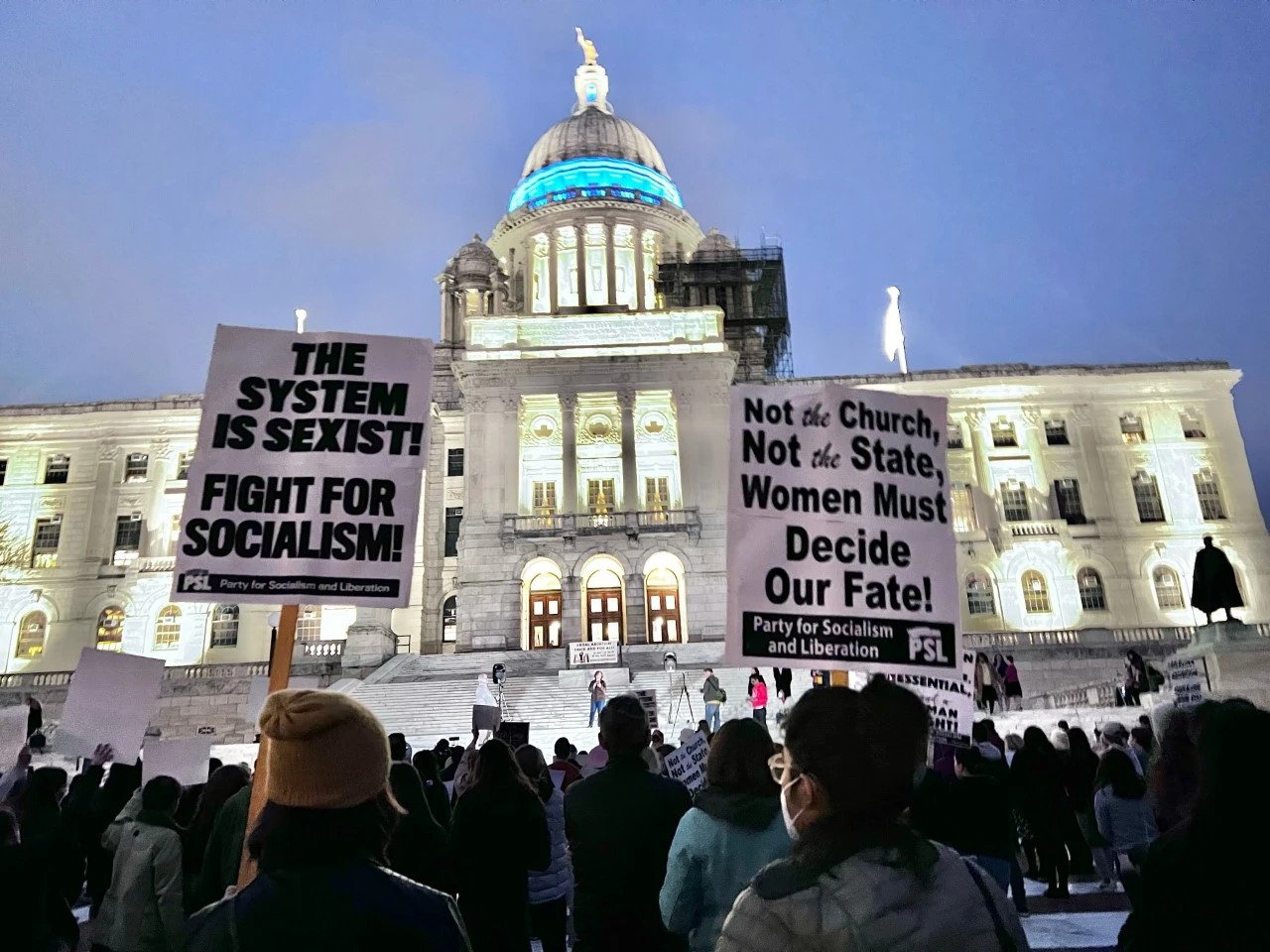URI GSC to add Safe Zone track focusing on reproductive rights. Photo Contributed by: WPRI.com
In the wake of the Dobbs v. Jackson decision that overturned Roe v. Wade, the University of Rhode Island has prioritized education about sexual health and women’s issues on campus.
On June 24, the United States Supreme Court overturned the legislation that made access to abortion a constitutional right.
URI’s Medical Director Christopher Nasin explained that Rhode Island was proactive in passing state legislation to protect women’s rights, including access to safe abortions. In 2019, former Governor Gina Raimondo signed the Reproductive Privacy Act to protect women’s reproductive freedoms across the state.
“I think that a lot of [more] liberal states were aware that Roe v. Wade would be overturned, so they were proactive in state legislation to prevent loss of rights,” Nasin said. “We’re fortunate in New England where our leadership is forward-thinking.”
Even though Rhode Island citizens still have access to legal abortions, the overturning of Roe v. Wade has still impacted college campuses across the state. According to Annie Russell, the director of the Gender and Sexuality Center (GSC), reproductive health and prevention have become common topics of discussion at both the GSC and Women’s Center.
Nasin said that Health Services’ utmost priority is ensuring students’ physical and mental well-being. According to him, ensuring reproductive health is a large part of ensuring students’ health and safety.
By working with the Women’s Center and GSC, Health Services has created a system of support for students, as Nasin described– with services ranging from basic sexually transmitted infections screenings to one-on-one emotional counseling.
Because Rhode Island leadership was “mindful” and “forward thinking,” Nasin doesn’t think that the Supreme Court’s overturning of Roe v. Wade has directly impacted Health Services’ support operations.
“Help with abortions, sexual assault… No matter what someone’s coming in for, we’ll help them in any way we can,” Nasin said.
In terms of preventative health, students at URI have access to both in-person and virtual STI screenings that do not require a copay for insurance. In addition, there is a nurse-run STI clinic in the campus’ Potter building, as well as a gynecologist to help with more complex women’s health issues.
“In the next six months [we] will probably have online options where students can just sign up online [and] fill out some forms,” Nasin continued. “We’re doing everything we can to break down any kind of barrier for that type of testing.”
For the case of unplanned pregnancies, Health Services helps students through its partnerships with other state resources, such as Planned Parenthood, according to Nasin.
In addition to physical health resources, Health Services provides many ways for students to educate themselves on matters concerning preventative health. According to the Director of Health Services Ellen Reynolds, URI has robust programs about health education and health promotion.
Health Services speaks with clubs, residence halls, Greek life organizations and athletic teams to ensure students are aware of the services the University offers students. These include options for abortion, STI screenings and formal sexual assault reports, according to Nasin.
Whether it be in the form of counseling or consultation, Health Services hopes to provide students with resources to stay safe on campus, according to Nasin and Reynolds.
Students can also seek guidance about dealing with stress or personal issues at the counseling center. According to Reynolds, all services are confidential– except for very limited circumstances.
Although the overturning of Roe v. Wade has not directly impacted how the Health Services department provides support to students, other groups and centers on the Kingston Campus have changed how they approach sexual health and women’s rights.
This summer, URI’s Gender and Sexuality Center held a town-hall-style event for students to discuss how the decision would affect them. Russell said this event was a way to help community members process and share their feelings about the overturning of Roe.
Aside from the summer discussion, Russell noted that the GSC intends to create a Roe v. Wade task force, in order to further open up community discussion about abortion and women’s reproductive rights.
“Starting October, the task force will meet once a month and discuss issues and resources,” Russell said.
The Center also has a program called the Safe Zone Project, with two hour workshops designed to increase awareness and knowledge of various LGBTQIA+ and women’s issues. Following the overturning of Roe v. Wade, the GSC is debuting a Safe Zone track titled “Reproductive Rights,” and anyone can attend.
Russell hopes that through education and discussion, students at URI feel safe and supported following the U.S. Supreme Court’s decision this past summer.

